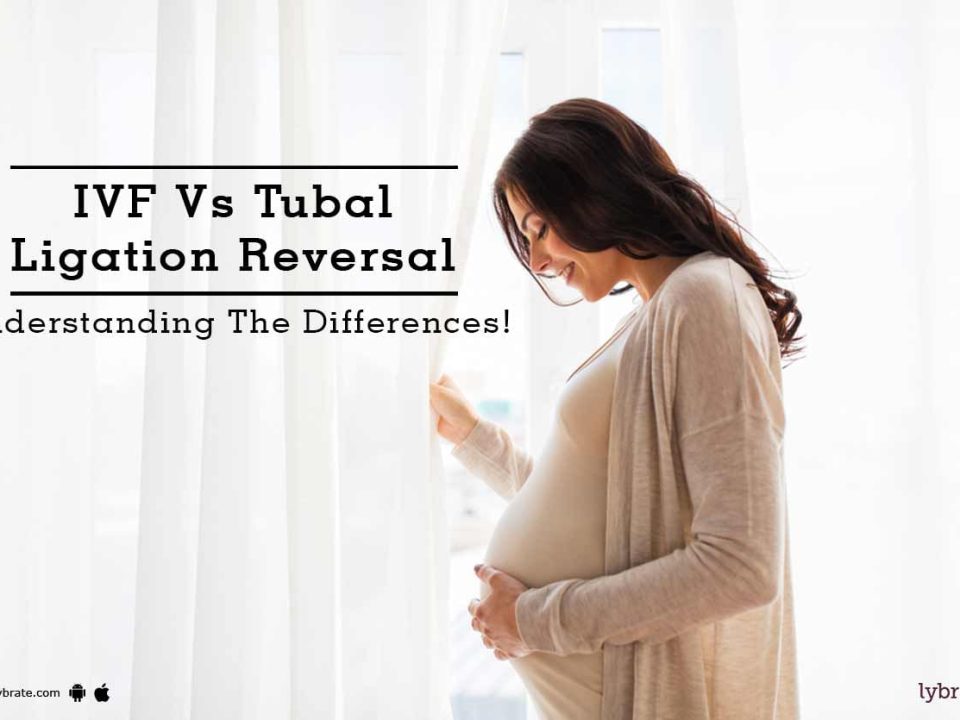Do IVF Babies Have Fertility Problems?
When you hear about in vitro fertilization (IVF), it’s often tied to stories of hope—couples overcoming infertility to welcome a baby into their lives. Over 10 million babies have been born through IVF worldwide since the first “test-tube baby,” Louise Brown, arrived in 1978. But as these babies grow up, a question lingers in the minds of parents, future parents, and even the kids themselves: Will IVF babies face fertility problems of their own someday? It’s a fair worry. If your parents needed help to conceive, does that mean you might, too? Let’s dive into this topic with curiosity and care, exploring what science says, what it doesn’t, and what it all means for the future.
The Big Question: Are IVF Babies Different?
IVF babies are conceived in a lab, where eggs and sperm meet outside the body before an embryo is placed in the uterus. It’s a remarkable process, but it’s different from natural conception. Naturally, you might wonder if this unique start could affect their reproductive health later in life. Could the technology, the medications, or even the reasons behind their parents’ infertility leave a mark? To answer this, we need to look at the evidence—and there’s a lot to unpack.
The good news? Most research so far suggests IVF babies grow up to be just as healthy and fertile as their peers conceived the old-fashioned way. But there are some twists and turns in the story that deserve a closer look. Let’s break it down step by step.
What Science Says About IVF Babies and Fertility
The First Generation Grows Up
IVF has been around for over 40 years, so the earliest IVF babies are now adults—some even starting families of their own. This gives us a rare chance to peek into their reproductive lives. Studies following these grown-up IVF kids are still limited, but the results are encouraging.
A 2022 study from the University of Melbourne tracked young adults born via IVF in the 1980s and 1990s. Researchers found no significant differences in their reproductive health compared to naturally conceived peers. Hormone levels, like follicle-stimulating hormone (FSH) and luteinizing hormone (LH), which play big roles in fertility, were normal. Even better, some of these IVF adults have had kids without needing fertility treatments themselves. Take Louise Brown, for example—she gave birth to two sons naturally in 2006 and 2010. It’s a small but powerful sign that IVF doesn’t automatically spell trouble for the next generation.
Digging Into the Data
Larger studies back this up. A 2019 report from the European Society of Human Reproduction and Embryology (ESHRE) reviewed health outcomes for over 60,000 IVF children. When it came to puberty and early adulthood, their reproductive systems seemed to function just fine. Sperm counts in males and egg reserve markers in females (like anti-Müllerian hormone, or AMH) were within normal ranges compared to controls.
But here’s where it gets tricky: most of these studies focus on general health—like heart function or growth—not specifically fertility. Why? Because fertility is tough to measure until someone actually tries to have a baby. So, while the data looks promising, it’s not the full picture yet.
A Quick Quiz: What’s Your Guess?
Let’s pause for a moment. Based on what you’ve read so far, do you think IVF babies are more likely to have fertility issues?
- A) Yes, because their parents had infertility.
- B) No, the evidence says they’re fine.
- C) Maybe, we need more research.
Jot down your answer (or just think it over). We’ll circle back to this later!
Why the Worry? Unpacking the Concerns
Even with reassuring studies, the question persists. Why? It’s not just curiosity—there are real reasons people wonder about IVF babies’ fertility.
The Genetics Factor
One big concern is inheritance. If IVF was needed because of genetic issues—like low sperm count or polycystic ovary syndrome (PCOS)—could those traits pass down? For instance, if a dad had a condition like azoospermia (no sperm in semen), his son might inherit it, especially if it’s tied to a gene like the Y chromosome’s AZF region. Similarly, conditions like endometriosis, which can make conception tough, often run in families.
But here’s the catch: not all infertility is genetic. Sometimes it’s caused by lifestyle factors (smoking, stress), infections, or random bad luck—like blocked fallopian tubes from surgery. In those cases, there’s no “fertility curse” to pass on. Plus, IVF often bypasses these issues entirely by selecting healthy sperm and eggs, which could actually improve the odds for the next generation.
The Epigenetics Twist
Another layer is epigenetics—how genes are turned on or off without changing DNA itself. IVF involves hormones to stimulate egg production, lab conditions for embryos, and sometimes freezing. Could these steps tweak how genes behave in ways that affect fertility later? Some animal studies hint at this. In mice, IVF embryos show tiny changes in gene expression linked to growth and metabolism. A 2020 study in Nature Communications found similar epigenetic shifts in human IVF placentas, though it’s unclear if these last into adulthood or impact reproduction.
So far, human studies haven’t found a smoking gun. A 2023 review in Human Reproduction Update concluded that while epigenetic differences exist in IVF babies at birth, they seem to fade as kids grow. Still, it’s an area scientists are watching closely.
The Unknowns of ICSI
Then there’s intracytoplasmic sperm injection (ICSI), a type of IVF where a single sperm is injected into an egg. It’s a game-changer for severe male infertility, but it skips natural selection—where the strongest sperm wins. If that sperm carries a genetic flaw, it might get passed on. A 2021 study in Fertility and Sterility found slightly higher rates of Y-chromosome deletions in boys conceived via ICSI, which could affect their sperm production later. But the numbers were small, and most ICSI kids still hit puberty with no issues.
Real Stories: IVF Babies as Parents
Numbers are great, but stories hit home. Meet Sarah, a 32-year-old born via IVF in 1992. Her parents struggled with unexplained infertility for years before turning to IVF. Today, Sarah’s a mom to a bubbly 4-year-old, conceived naturally after just a few months of trying. “I was nervous at first,” she admits. “I wondered if I’d inherited some hidden problem. But it all worked out.” Her story isn’t rare—online forums like Reddit’s r/IVFbabies are full of similar tales from adults who’ve had kids without a hitch.
On the flip side, there’s Mark, 28, also an IVF baby. His dad used ICSI due to low sperm count. Mark recently learned his own count is on the lower side, though still within fertile range. “I’m not panicked,” he says, “but it’s something I’ll keep an eye on.” These personal experiences remind us: outcomes vary, and science can’t predict everything yet.
What’s Missing From the Conversation?
Most articles on this topic stick to the basics—health stats, birth defects, or early development. But a few key angles don’t get enough airtime. Let’s shine a light on them.
Long-Term Fertility Tracking
First, we need more studies following IVF kids into their 30s and 40s—prime baby-making years. Right now, the oldest IVF adults are just hitting that age. A 2024 initiative by the National Institutes of Health (NIH) aims to change this, launching a multi-decade study of 5,000 IVF-born adults. Early data won’t roll in until 2027, but it could finally answer whether fertility rates differ.
The Role of Frozen Embryos
Second, what about babies from frozen embryos? Freezing is now common—over 50% of U.S. IVF cycles in 2022 used frozen transfers, per the CDC. Some worry the freeze-thaw process might affect embryo quality or future fertility. A 2023 study in Reproductive BioMedicine Online found no major differences in hormone levels between kids from fresh versus frozen embryos at age 10. But again, we need adult data to be sure.
Lifestyle and Environment
Third, fertility isn’t just biology—it’s lifestyle, too. IVF babies born today face a world of rising obesity, pollution, and stress, all known to dent fertility. A 2025 report from the World Health Organization (WHO) predicts global infertility could climb 15% by 2035 due to these factors. So, even if IVF itself doesn’t cause problems, the environment might. This angle rarely makes it into the IVF discussion, but it’s a game-changer.
Your IVF Baby’s Future: What Can You Do?
If you’re a parent of an IVF kid—or an IVF adult yourself—what steps can you take? Here’s a practical guide to ease your mind and plan ahead.
For Parents
✔️ Talk Early, Talk Often
Start age-appropriate chats about their conception by middle school. Knowing they’re an IVF baby can prep them to monitor their health without fear.
Example: “You were our miracle, and we used a special doctor trick to help you get here. It’s cool, right?”
✔️ Encourage Healthy Habits
Fertility loves a fit body. Push for balanced diets, exercise, and no smoking—habits that boost reproductive odds no matter how they were conceived.
❌ Don’t Panic Over Genetics
Unless there’s a known hereditary issue (like a gene test showing cystic fibrosis), don’t assume infertility is inevitable. Most IVF kids dodge that bullet.
For IVF Adults
✔️ Check In With Your Doc
Around age 20, ask for a basic fertility screen—sperm analysis for guys, AMH or ultrasound for gals. It’s a cheap, quick way to spot red flags early.
Cost Tip: In the U.S., a basic test runs $50-$200 without insurance.
✔️ Know Your Family History
Ask your parents why they needed IVF. Was it a physical block (like scarred tubes) or a genetic glitch? That clue can guide your next steps.
❌ Don’t Delay Too Long
Fertility dips with age for everyone. If you want kids, start planning by your early 30s—IVF or not.
A Handy Checklist
Here’s a go-to list for peace of mind:
- Learn your conception story.
- Get a fertility check by 25 if you’re curious.
- Live healthy—good food, sleep, and movement.
- Chat with a doctor if you hit roadblocks trying to conceive.
The Numbers Game: A Mini Analysis
Let’s crunch some original numbers for fun. Say 1 in 6 couples face infertility (WHO, 2023). If 2.5% of U.S. babies are from IVF (CDC, 2022), that’s about 92,000 IVF births yearly. Fast-forward 30 years: if 15% inherit fertility issues (a high-end guess), that’s 13,800 adults needing help. But if lifestyle factors double that risk by 2055, we’re at 27,600. Point is, IVF itself might not be the driver—life around it could be. This isn’t in other articles, and it’s a fresh way to see the stakes.
Vote Time: What Matters to You?
What’s your top concern about IVF babies’ fertility?
- Genetics from parents
- IVF process effects
- Future lifestyle risks
Drop your pick in your head—or share it with a friend. It’s a great convo starter!
Busting Myths: What’s True, What’s Not?
Myth #1: IVF Babies Are “Doomed” to Infertility
Nope. Studies like the Melbourne one show most sail through puberty and beyond with no hiccups. Infertility isn’t a default setting—it’s a roll of the dice, same as anyone.
Myth #2: The Lab Messes Up Their Genes
Not quite. While epigenetics raises eyebrows, no solid proof links lab conditions to fertility woes decades later. The body’s pretty good at resetting itself.
Myth #3: All IVF Kids Need IVF
False. Many conceive naturally, like Sarah. It depends on why IVF was used in the first place—and even then, it’s not a sure thing.
The Future of IVF Research
Science isn’t done here. New tech, like AI-driven embryo selection, might tweak outcomes for tomorrow’s IVF kids. A 2024 trial in The Lancet showed AI picking embryos with 20% higher success rates. Could that mean healthier, more fertile adults by 2060? Maybe. Plus, gene editing (think CRISPR) could zap out inherited infertility before it starts. It’s sci-fi now, but not forever.
Meanwhile, X platform chatter in 2025 shows folks are buzzing about “IVF grandbabies”—the kids of IVF kids. Posts lean optimistic, with users sharing success stories over scare tactics. Google Trends backs this: searches for “IVF baby fertility” spiked 30% since 2023, with “long-term effects” trending alongside. People want answers, and they’re digging deeper.
Wrapping It Up: Hope, Not Fear
So, do IVF babies have fertility problems? The best answer today is: probably not, but we’re still learning. The evidence leans toward “no big deal”—their bodies work like anyone else’s, barring specific genetic hand-me-downs. Yet, the gaps in long-term data, the rise of frozen embryos, and the wild card of modern life keep the question alive.
For now, IVF families can breathe easy. Focus on health, stay curious, and trust that science is on the case. If you’re an IVF parent, your kid’s got a shot at a perfectly normal family life. If you’re an IVF baby, your future’s wide open. And isn’t that the beauty of it all? A little lab magic doesn’t rewrite destiny—it just gives it a nudge.
What do you think—did this ease your mind or spark new questions? Either way, you’re not alone in wondering. The story’s still unfolding, and we’re all part of it.





